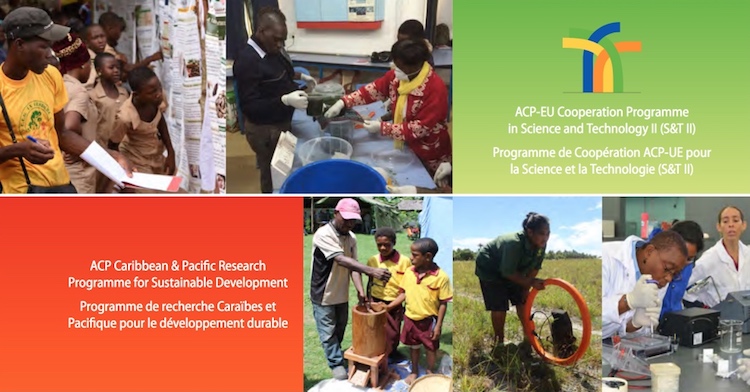By Jeffrey Moyo
HARARE (ACP-IDN) – The world’s first green power generator which can produce electricity using radio frequencies, an electric powered car which does not consume fuel, a multi-fueled helicopter: by any stretch of imagination, innovations like these will not be attributed to an African. But Maxwell Chikumbutso has meanwhile been recognized as an exception to the rule. The United States government has given him new home in the populous state of California.
In an interview with a Zimbabwean independent online media organization, Chat263.com, Chikumbutso expressed disappointment that Africa did not see what the U.S. Government saw in his ground-breaking inventions.
“The USA Government saw what Africa did not and California is now our HOME, the Head Office of ‘Saith Holdings Inc.’. I always love AFRICA and I’m so proud of being born and raised in AFRICA. I will surely come back to Zimbabwe where everything started.” said Chikumbutso.
Meanwhile, there is good news for African researchers and innovators. A new initiative launched by the African, Caribbean, and Pacific (ACP) Group of States with the backing of the European Union (EU) is seeking to unlock the inclusive innovation potential of the 79 ACP countries.
According to the Brussels-based ACP, new technologies, knowledge and innovations can be powerful drivers of inclusive and sustainable socio-economic development. “In fact, investments in research, innovation and technology are considered instrumental to the implementation of the 2030 Agenda for Sustainable Development.”
The ACP-EU programmes and projects supported by the European Union include:
ACP Science and Technology (S&T) programme, which aims to strengthen the innovation capacity of all ACP countries. To achieve this, it promotes interdisciplinary approaches and intervenes on numerous levels ranging from academic research to business and civil society.
ACP Caribbean & Pacific Research Programme for Sustainable Development, which focuses on support for research and innovation initiatives from ACP stakeholders. The target areas in the Caribbean and Pacific countries which benefit from the progarmme are agriculture, renewable energy, water, sanitation and climate change.
ACP Research for Sustainable Development Programme is one of the flagship initiatives in the Partnership on Science, Information Society and Space of the EU-Africa Joint Strategy. Strategic priority actions at African level currently include post-harvest and agriculture, renewable and sustainable energy as well as water and sanitation.
ACP Connect for Research and Education Networks: The project is advancing the development of research and education networks in sub-Saharan Africa, the Pacific and the Caribbean and their inter-connection with GEANT, a pan-European data network connecting the research and education community.
Africa-EU Partnership on Science, Information Society and Space is promoting the participation of the African research community in EU programmes for research and technological development and is supporting regional research networks.
In the space applications sector, EU funding has been made available for satellite positioning/navigation and earth observation technologies. Investments target capacity building for the European Geostationary Navigation Overlay Service (EGNOS) and the preparation of a possible deployment of Global Monitoring for Environment and Security (GMES) to Africa.
Thanks to backing by the EU, in East Africa, in countries such as Kenya, innovation has gone several gears up. For instance, in 2018, the EU offered grants of up to €60 000 to support innovative on-the-ground cultural projects in Kenya and a selected other African countries.
So, Kenyans like 27-year old Aminifu Mwangi, a beneficiary of the EU fund making a life south of the country, has managed to preserve age old cultural huts that were once used by the olden Maasai tribe, now attracting domestic and international tourists.
“I have basically become a breadwinner in my family through looking after very old huts that were once occupied by some ancient Maasai tribesmen here and tourists bring in money as they visit,” Mwangi told IDN.
In Zambia, as ACP-EU cooperation has taken the drive to advance science, innovation and technology: The government in Lusaka has been on record welcoming support even in areas of technology in a bid to help the country become a prosperous middle-income country by 2030.
Zambia’s Eastern Province Minister Makebi Zulu in an interview with Biztech Africa said: “We believe there is an urgent need to implement this agenda and vision in order to promote innovation and a knowledge-based economy for the country. We cannot afford to fall behind in this competitive global knowledge economy if the country is to attain a prosperous and global competitive knowledge based developed country. There is therefore need to harness our capabilities, partnership and opportunities.”
Zulu also noted that “Zambia’s advances in technology have been to the exclusion of rural communities and that investment in the sector would help to address the digital, financial and information gap between rural and urban communities”.
But Zambia’s independent development experts like Tepwanji Mwanawasa bank their optimism on the initiatives by organisations like ACP-EU to aid the African continent embrace science, innovation and technology.
“We may be less sophisticated in terms of advancement in modern technology, but I am sure ACP-EU in this regard would come to our rescue as a country and help us grow in areas of science and technology. Poverty derails our efforts as a country to embrace technology, but with adequate help, I tell you our country would be the envy of many nations,” Mwanawasa told IDN.
Even for Zimbabwe’s Information Technology experts like Dan Chiwara who holds a degree in Information Technology from this country’s Midlands State University, the ACP-EU support is important for the country.
“The world loves technology and the world supports technology. With viable and unique technological innovations, anyone can get support from organisations like ACP-EU and surely why not change the world with these innovations?” Chiwara said. [IDN-InDepthNews – 01 June 2019]
Collage source: ACP-EU S&T Cooperation
This report is part of a joint project of the Secretariat of the ACP Group of States and IDN, flagship agency of the International Press Syndicate.
facebook.com/IDN.GoingDeeper — twitter.com/InDepthNews — twitter.com/acp_idn
Send your comment: comment@indepthnews.colo.ba.be
Subscribe to IDN Newsletter: newsletter@indepthnews.colo.ba.be

